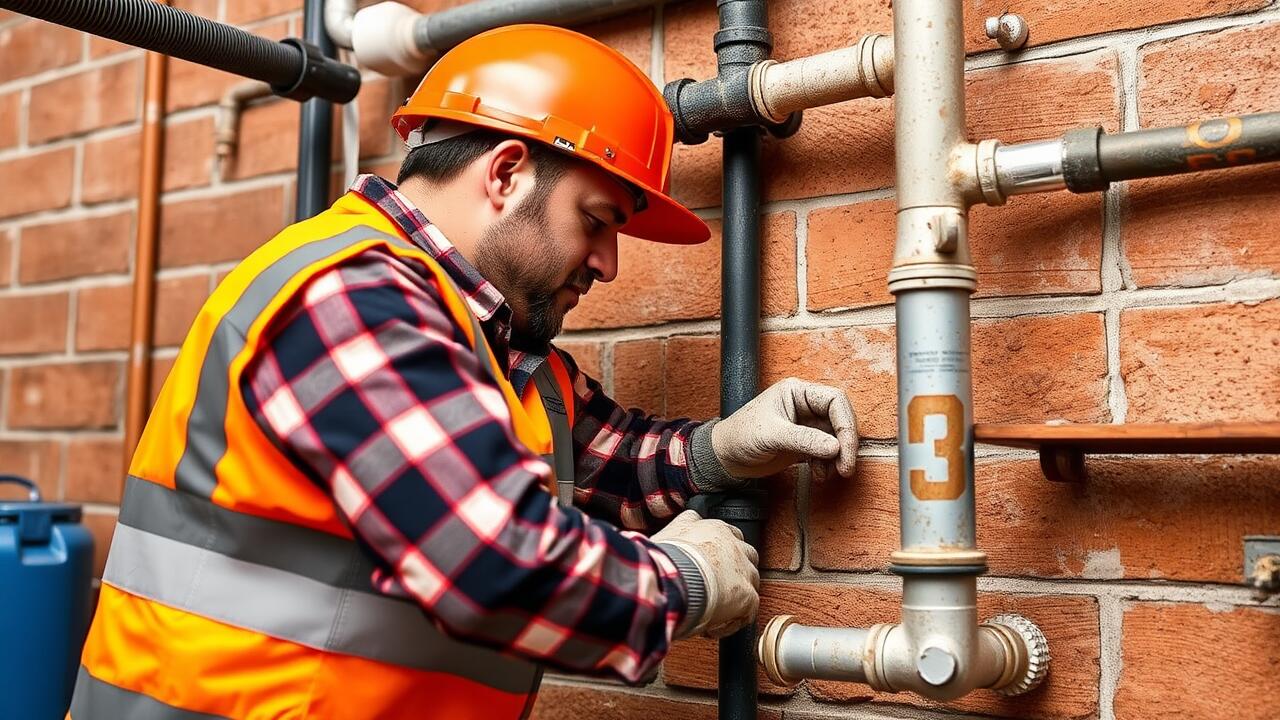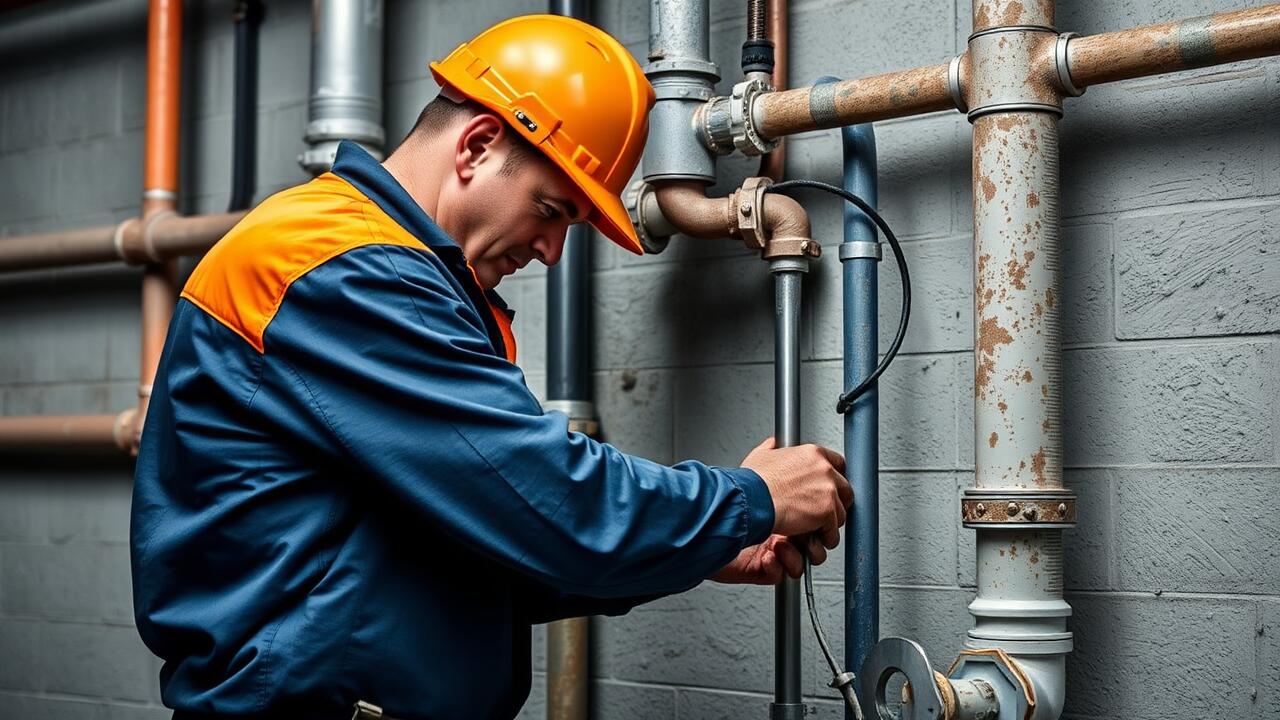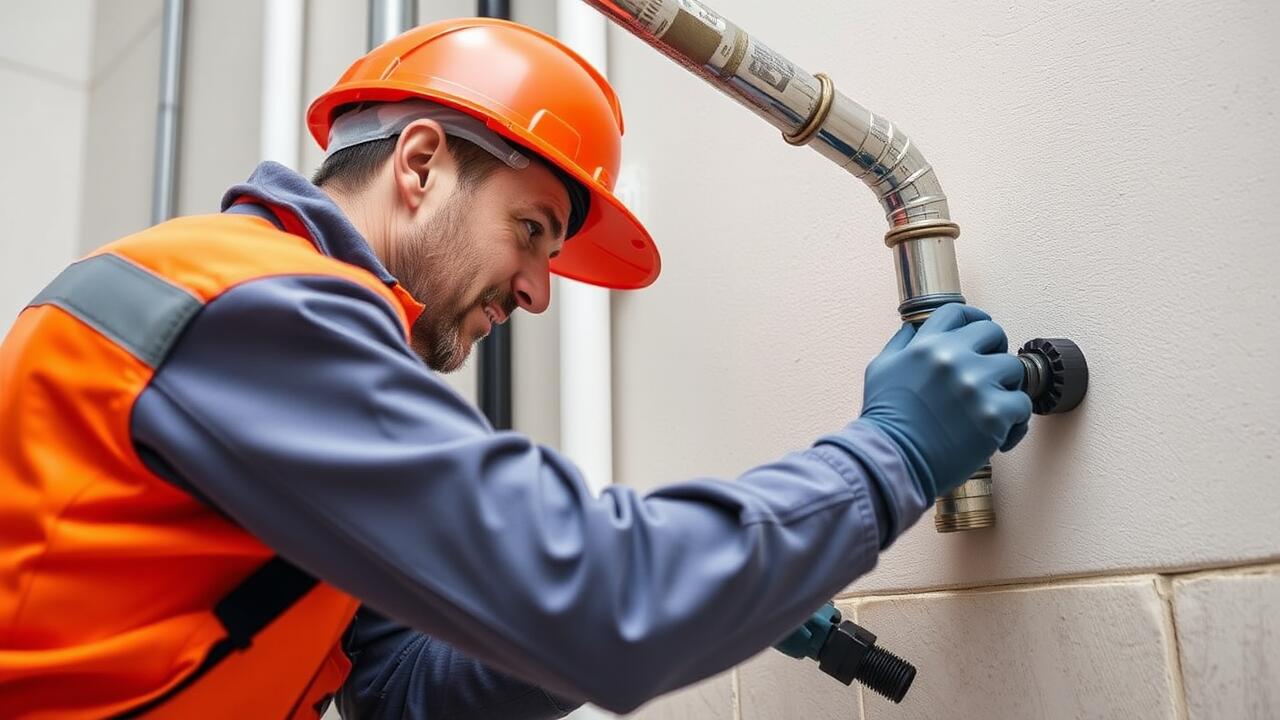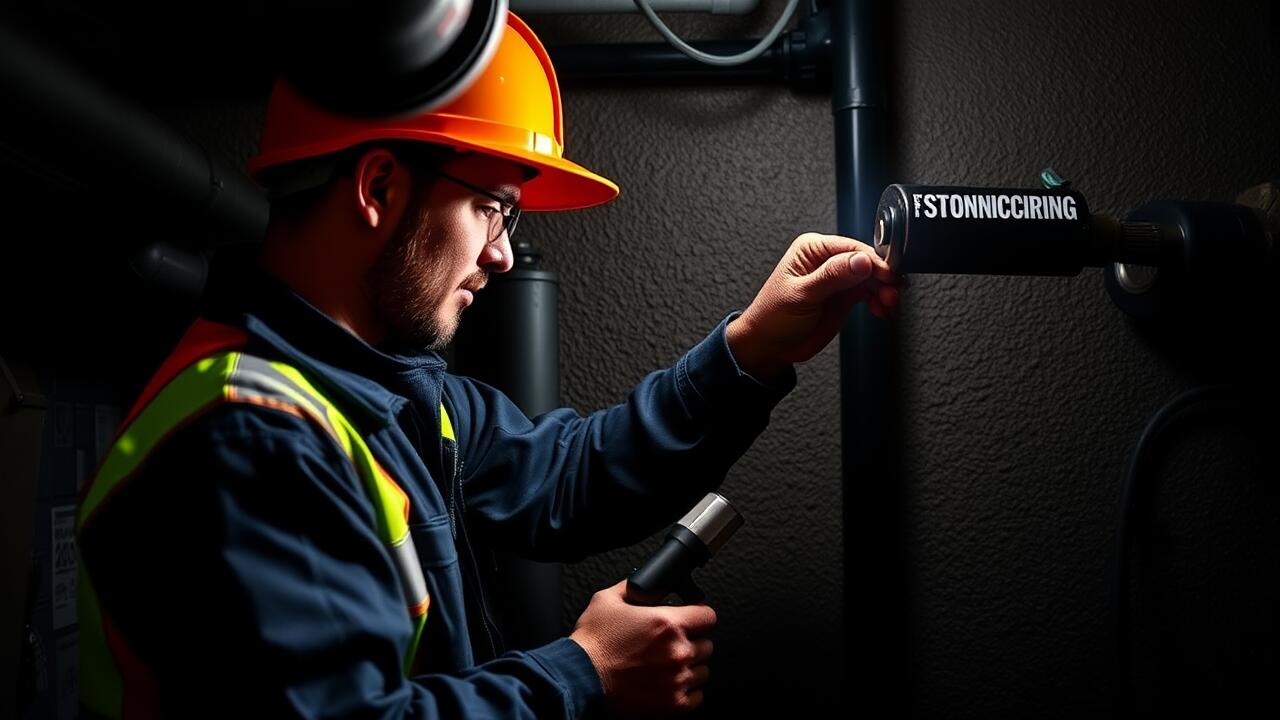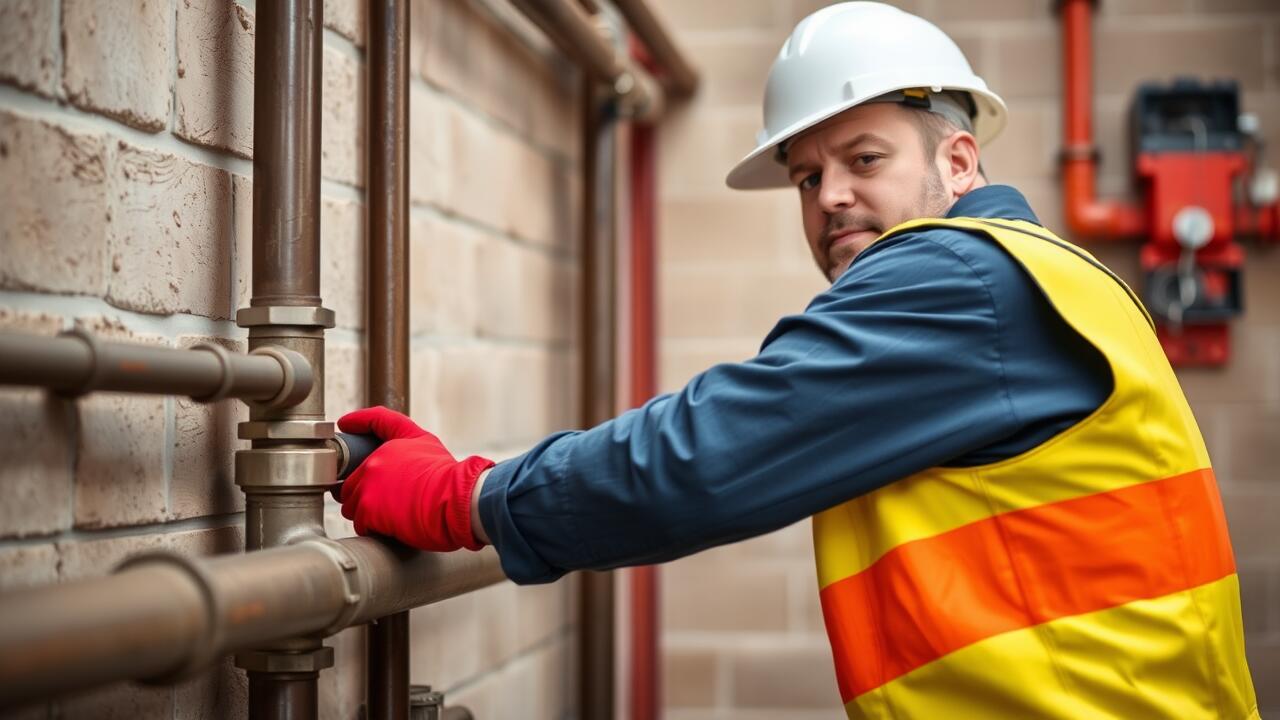
Galvanized Steel Pipes
Galvanized steel pipes have been a popular choice for plumbing projects, especially in older structures. These pipes are coated with a layer of zinc to protect against corrosion, which enhances their longevity. Commonly used in residential water supply systems, they can effectively handle high pressure and deliver water efficiently. However, over time, the zinc coating can erode, leading to rust and eventual water contamination. This concern emphasizes the importance of assessing the condition of existing galvanized pipes during renovations or replacements.
For those searching for “Pipe installation near me,” contractors often recommend evaluating the benefits and limitations of galvanized steel pipes. While they can provide strength and durability, their susceptibility to corrosion makes them less favorable compared to modern materials like PVC and PEX. Additionally, their weight can complicate installation and may require additional support structures. As Hollywood plumbing projects evolve, choosing the right pipe material becomes essential for ensuring long-term performance and safety.
Common Uses and Drawbacks
Galvanized steel pipes have long been a popular choice for various plumbing applications. They are commonly found in residential and commercial settings, often used for water supply lines and outdoor plumbing systems. Their ability to withstand high pressure makes them suitable for many projects. However, they are prone to corrosion over time, which can lead to leaks and reduced water quality. When searching for “pipe installation near me,” it is essential to consider the potential need for future replacements.
The drawbacks of galvanized steel pipes extend beyond corrosion. They can be heavy and cumbersome, complicating the installation process. Moreover, mineral deposits may accumulate inside the pipes, further diminishing water flow. Although they can offer initial cost savings compared to other materials, the long-term maintenance and replacement needs can outweigh these factors, making them less desirable for modern plumbing projects.
Cast Iron Pipes
Cast iron pipes have been a reliable choice for plumbing projects for decades. Known for their impressive durability, these pipes can withstand high pressures and heavy loads, making them ideal for underground applications. Cast iron offers excellent noise reduction properties, which is a significant advantage in residential settings. Many plumbing professionals often recommend cast iron for its long lifespan, as these pipes can last over a century with proper maintenance.
However, cast iron pipes are not without their drawbacks. They can be prone to corrosion over time, particularly in areas with acidic soil. This corrosion may lead to leaks or blockages that can be costly to repair. Homeowners considering renovations may benefit from searching "pipe installation near me" to find local experts who can help assess the suitability of cast iron for their specific plumbing needs. The decision to use cast iron should weigh both its benefits and potential challenges to ensure the best outcome for plumbing systems.
Durability and Performance
Cast iron pipes are renowned for their outstanding durability and long lifespan, making them a popular choice in various plumbing applications. Their ability to withstand high pressures and resist corrosion contributes to their reliability over decades. These pipes can tolerate fluctuations in temperature and are less likely to crack under stress, which is particularly advantageous in regions with extreme weather conditions.
Performance-wise, cast iron pipes excel in noise reduction due to their dense material, which dampens sounds from flowing water. This feature is often appreciated in residential and commercial settings. However, the weight of cast iron can complicate the installation process, making professional assistance necessary. Homeowners searching for local services might find the phrase "pipe installation near me" useful to locate qualified plumbers for effective installation and maintenance of these sturdy pipes.
HDPE Pipes
HDPE pipes, or high-density polyethylene pipes, are increasingly favored for their lightweight and flexible nature. They excel in applications that require resistance to corrosion and various chemicals. Their smooth interior surface reduces friction, leading to improved flow rates and less energy consumption. Because of their durability and longevity, HDPE pipes are commonly used in residential, commercial, and industrial projects. Individuals seeking efficient solutions often look for "pipe installation near me," making HDPE a popular choice.
Another significant advantage of HDPE pipes is their lower environmental impact compared to traditional materials. Made from recyclable materials, they contribute to sustainability efforts in plumbing projects. Additionally, the installation process can be less disruptive, as HDPE pipes can be easily maneuvered and require fewer joints. This ease of installation not only reduces labor costs but also minimizes potential leaks, promoting a more reliable plumbing system.
Environmental Impact and Sustainability
HDPE pipes are becoming increasingly favored in various plumbing projects due to their lower environmental impact compared to traditional materials. These pipes are made from recycled plastics, contributing to reducing waste in landfills. Their lightweight nature not only simplifies transportation but also reduces the carbon footprint associated with logistics. Additionally, HDPE's resistance to corrosion and chemicals enhances its lifespan, leading to less frequent replacement and less resource consumption over time.
Sustainability in plumbing not only entails choosing the right materials but also involves proper installation techniques. Effective pipe installation near me can greatly influence the overall efficiency of plumbing systems and their environmental stewardship. The ability to withstand various environmental conditions without degrading means less maintenance and fewer resources devoted to repairs. Employing HDPE pipes in projects aligns well with green building practices, promoting a balance between performance and environmental responsibility.
FAQS
What are the main advantages of using galvanized steel pipes in plumbing projects?
Galvanized steel pipes are known for their strength and durability, making them suitable for high-pressure systems. They also resist corrosion better than non-coated steel pipes, contributing to a longer lifespan.
What are some common drawbacks of cast iron pipes?
While cast iron pipes are very durable and provide excellent sound insulation, they are heavy, which can make installation more challenging. Additionally, they can be prone to rust and corrosion over time.
How does HDPE compare to traditional materials in terms of environmental impact?
HDPE pipes are made from recycled materials and are fully recyclable themselves, making them a more environmentally friendly option compared to traditional materials like galvanized steel and cast iron, which have a higher carbon footprint in their production.
What plumbing projects are best suited for HDPE pipes?
HDPE pipes are ideal for projects that require flexibility and resistance to corrosion, such as underground installations, drainage systems, and water distribution networks, especially in environments prone to soil movement.
Are there any specific maintenance requirements for galvanized steel and cast iron pipes?
Yes, galvanized steel pipes may require periodic inspection for rust and corrosion, while cast iron pipes should be checked for leaks and structural integrity, particularly in older installations. Regular maintenance can help extend the lifespan of both materials.
